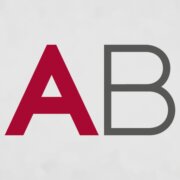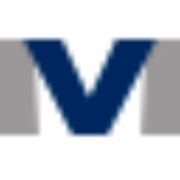Best White Collar Crime Lawyers in Switzerland
Share your needs with us, get contacted by law firms.
Free. Takes 2 min.
Or refine your search by selecting a city:
List of the best lawyers in Switzerland

About White Collar Crime Law in Switzerland
White Collar Crime in Switzerland encompasses a range of non-violent, financially motivated offenses, typically committed by individuals, businesses, or government officials in the course of their occupation. These crimes include fraud, embezzlement, bribery, insider trading, and money laundering among others. Switzerland, known for its robust financial sector and banking secrecy provisions, has established strict regulatory frameworks to prevent and combat white collar crimes.
Why You May Need a Lawyer
Engaging a lawyer is crucial when dealing with white collar crime issues due to the complexity and severity involved. Common situations include being accused of fraud, facing regulatory investigations by entities such as the Swiss Financial Market Supervisory Authority (FINMA), undergoing audits, or dealing with accusations of money laundering or corruption. Legal assistance is essential not only for defense but also for compliance and preventive measures to safeguard against potential liabilities.
Local Laws Overview
Switzerland has a comprehensive legal framework addressing white collar crime. Key aspects include:
- Swiss Penal Code: Addresses offenses such as fraud, breach of trust, corruption, and money laundering.
- Federal Act on Combating Money Laundering in the Financial Sector (AMLA): Establishes measures to prevent money laundering and financing of terrorism.
- Swiss Financial Market Supervisory Authority (FINMA) Regulations: Oversees compliance with anti-money laundering (AML) requirements and other financial regulations.
- Federal Act against Unfair Competition (UCA): Targets deceptive practices in business, including insider trading and corporate espionage.
Frequently Asked Questions
What constitutes fraud under Swiss law?
Fraud in Switzerland involves deceit intended to mislead another person resulting in financial or personal benefits. It covers false representations or manipulations resulting in unlawful gain.
Is insider trading legal in Switzerland?
No, insider trading is illegal. The Swiss Financial Market Infrastructure Act (FMIA) prohibits using non-public information for trading securities to ensure market integrity.
How is money laundering defined in Switzerland?
Money laundering includes acts that conceal the origin of assets linked to criminal activities. Switzerland implements strict AML laws, enforcing due diligence and reporting requirements.
What are the penalties for bribery in Switzerland?
Penalties for bribery can include fines, imprisonment, and a professional ban. Swiss law criminalizes both public and private corruption and targets both the giver and receiver of bribes.
How does Swiss law protect whistleblowers?
Switzerland lacks comprehensive whistleblower protection legislation; however, some protection exists under labor and contract laws. Reforms are ongoing to bolster protections for whistleblowers.
Are there specific laws for cybercrime related to white collar offenses?
Yes, the Swiss Penal Code covers cybercrime including offenses involving unauthorized data access, hacking, and fraud facilitated via electronic means.
Can companies face criminal liability in Switzerland?
Yes, legal entities can be held criminally liable, especially if the crime was committed in the pursuit of the company's interest or due to inadequate organizational measures to prevent such crimes.
What is the role of FINMA in combating white collar crime?
FINMA supervises financial markets and institutions, ensuring compliance with regulations to prevent fraud, money laundering, and other white collar crimes.
What should I do if I suspect my company is involved in white collar crime?
If you suspect wrongdoing, it's advisable to consult a legal expert for guidance, conduct internal investigations, and, if necessary, report to the appropriate Swiss authorities.
What is the statute of limitations for white collar crimes in Switzerland?
The statute of limitations varies based on the crime, generally ranging from three to fifteen years. More serious offenses have longer limitation periods.
Additional Resources
Consider consulting the following resources for more information:
- Swiss Federal Office of Justice (FOJ): Offers information and resources relating to Swiss criminal law.
- Swiss Financial Market Supervisory Authority (FINMA): Provides guidelines on compliance and regulatory measures against white collar crimes.
- Money Laundering Reporting Office Switzerland (MROS): A government body that addresses money laundering concerns and works in conjunction with financial intermediaries.
Next Steps
If you need legal assistance concerning white collar crime issues, it's crucial to act promptly. Start by consulting with a lawyer who specializes in white collar crime in Switzerland. It's often beneficial to gather any documentation related to your case, understand your rights under Swiss law, and work on a strategy with your legal counsel. Additionally, ensure compliance with all relevant laws to mitigate potential risks and engage in proactive measures to protect your interests.
Lawzana helps you find the best lawyers and law firms in Switzerland through a curated and pre-screened list of qualified legal professionals. Our platform offers rankings and detailed profiles of attorneys and law firms, allowing you to compare based on practice areas, including White Collar Crime, experience, and client feedback.
Each profile includes a description of the firm's areas of practice, client reviews, team members and partners, year of establishment, spoken languages, office locations, contact information, social media presence, and any published articles or resources. Most firms on our platform speak English and are experienced in both local and international legal matters.
Get a quote from top-rated law firms in Switzerland — quickly, securely, and without unnecessary hassle.
Disclaimer:
The information provided on this page is for general informational purposes only and does not constitute legal advice. While we strive to ensure the accuracy and relevance of the content, legal information may change over time, and interpretations of the law can vary. You should always consult with a qualified legal professional for advice specific to your situation.
We disclaim all liability for actions taken or not taken based on the content of this page. If you believe any information is incorrect or outdated, please contact us, and we will review and update it where appropriate.
Browse white collar crime law firms by city in Switzerland
Refine your search by selecting a city.















